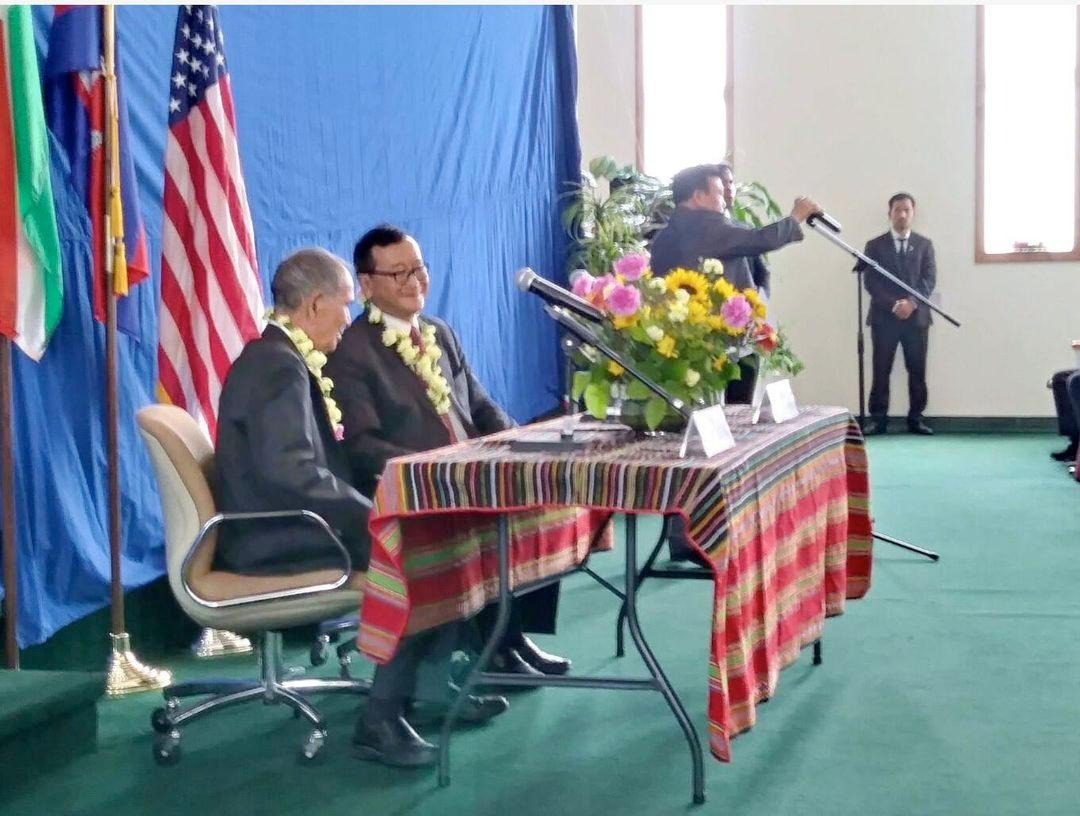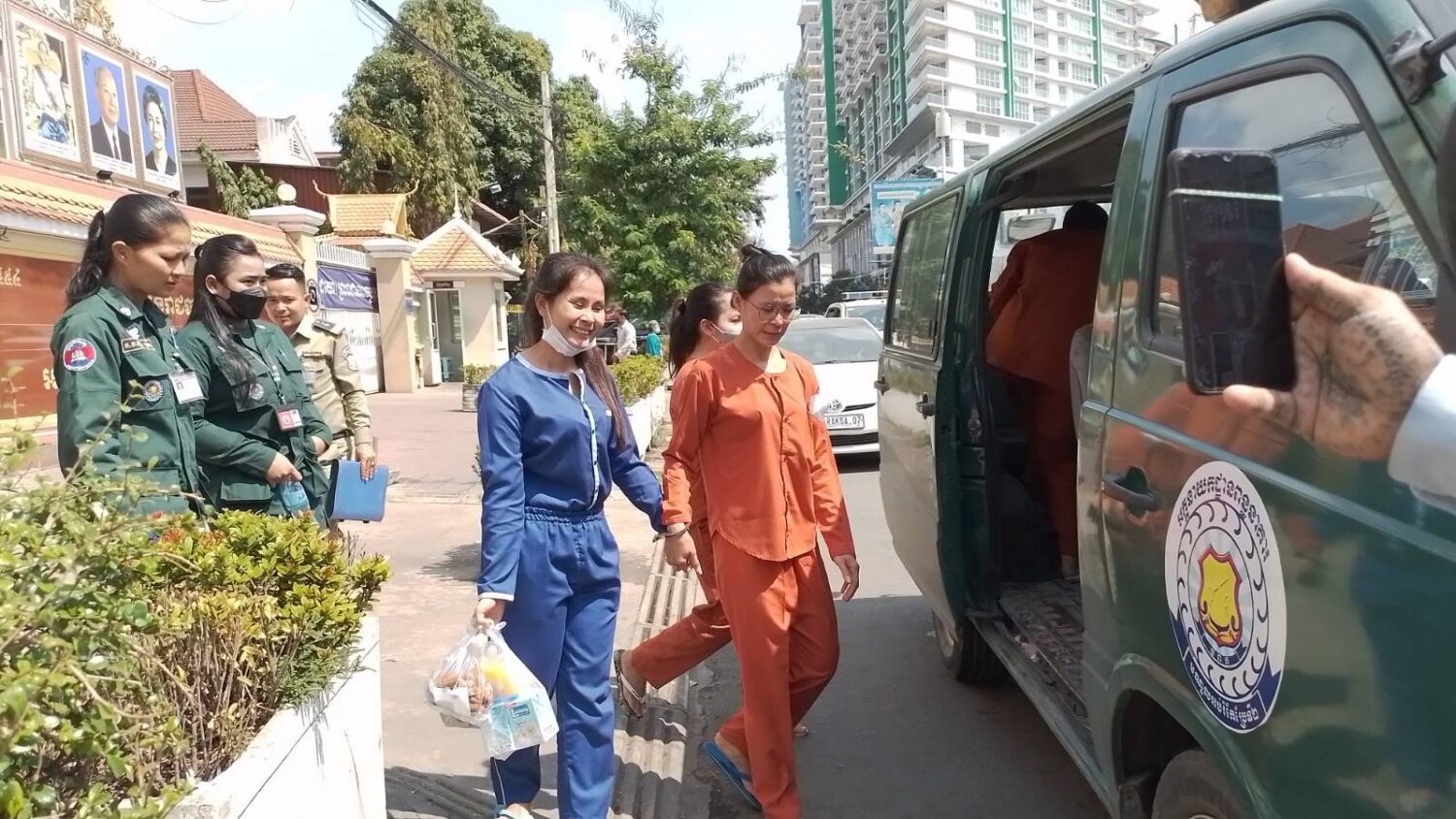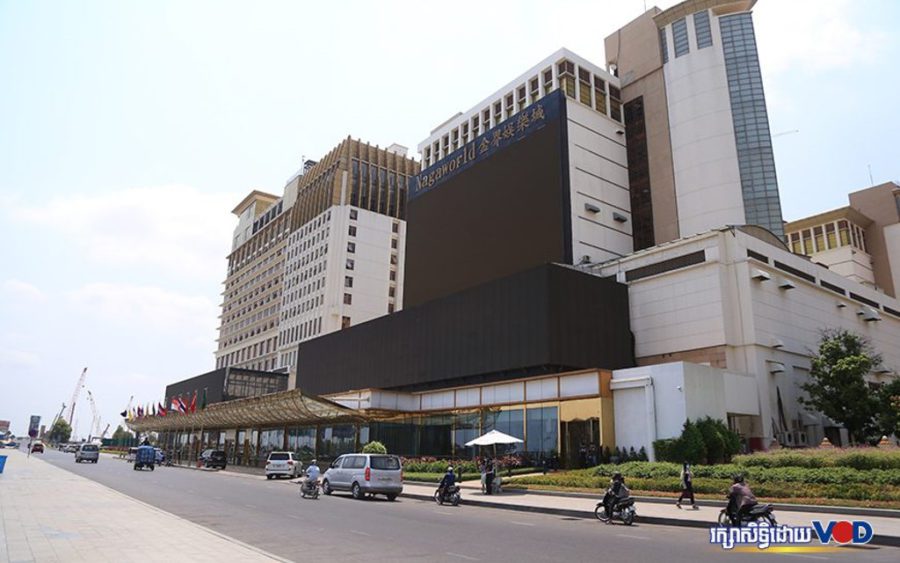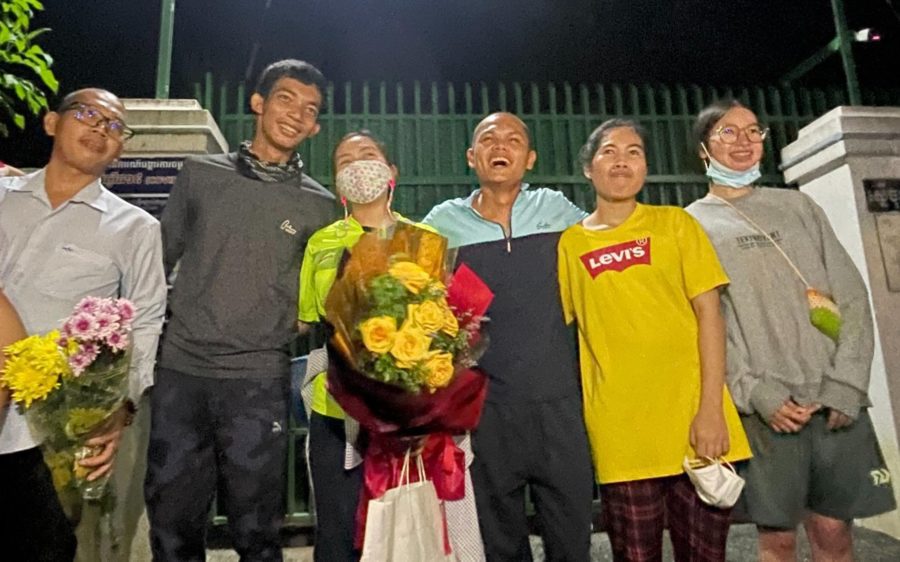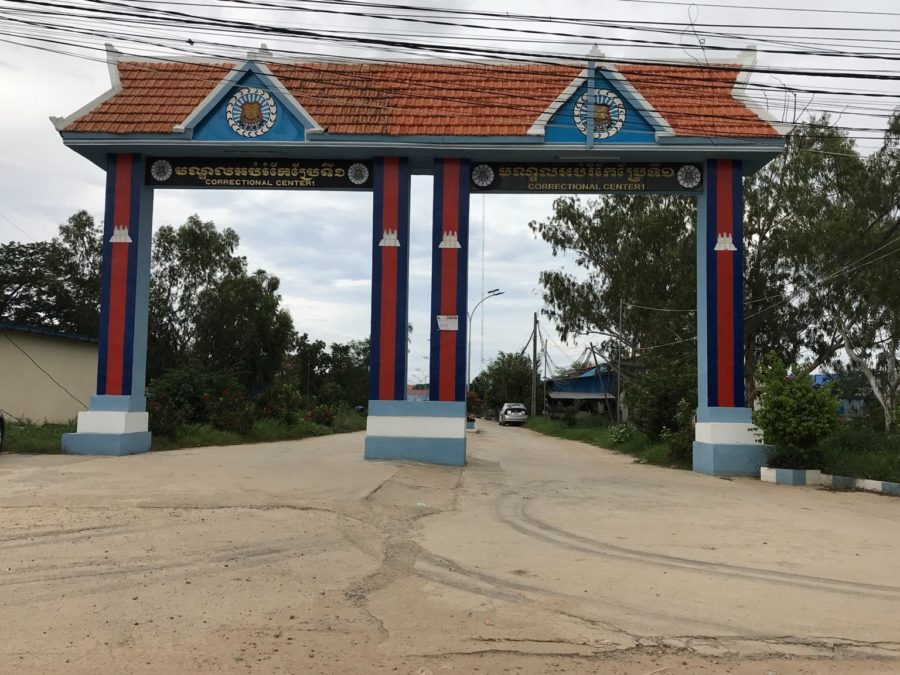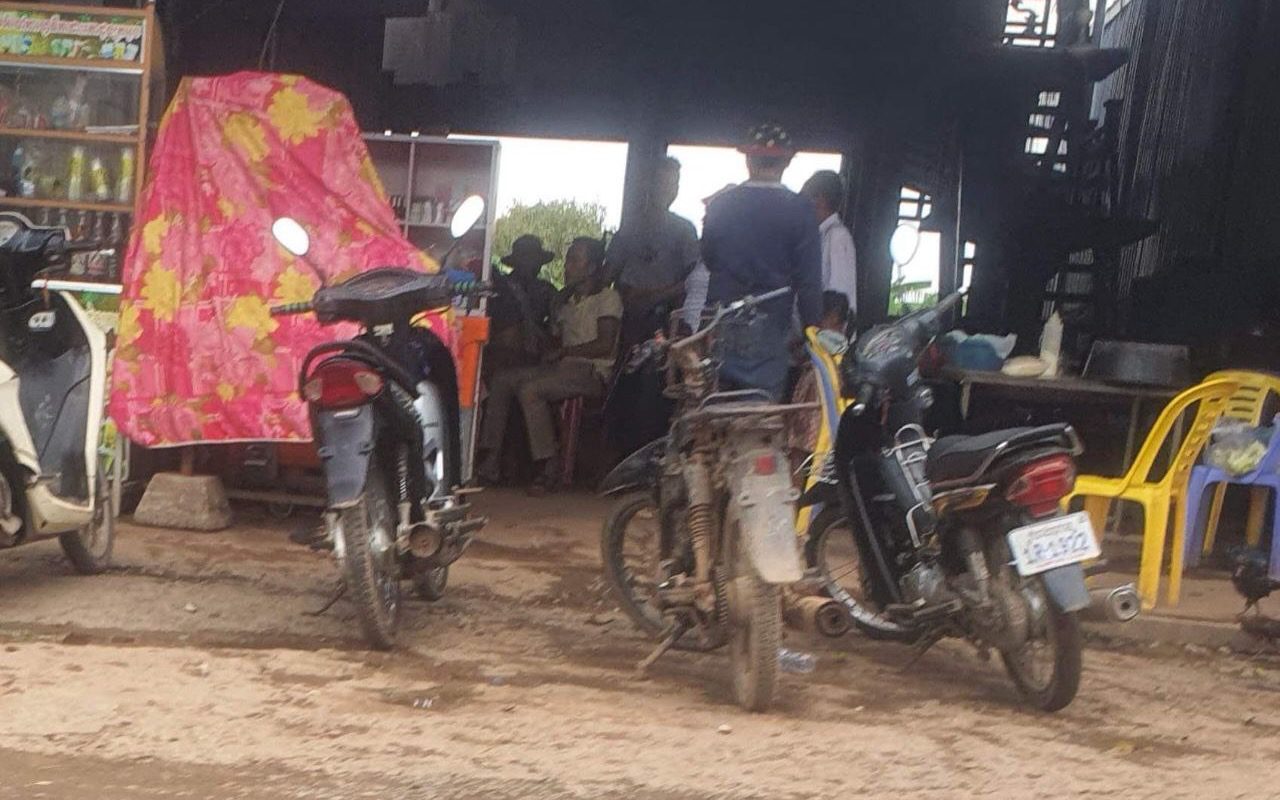A Phnom Penh court tried former CNRP president Sam Rainsy in absentia for a 2013 video showing the opposition leader promising to uphold the rights of indigenous minorities residing in Mondulkiri, Ratanakiri, Stung Treng and Kratie.
The case dates back to 2018 when a 2013 video and document resurfaced on a pro-CPP Facebook page called Rithy Erng of a meeting in the United States between Rainsy and Kok Ksor, the head of the Montagnard Foundation Inc.
Ksor had started the foundation to advocate for the rights of the Degar community in Vietnam, also known as Montagnards. The word Degar is an umbrella term which includes ethnic Jarai, who also reside in Cambodian provinces bordering Vietnam.
The government latched onto the video to accuse Rainsy of giving land to a foreign entity, and Fresh News presented the video as Rainsy pledging to give the four provinces independence.
At the time, Rainsy confirmed signing the document — which had three articles from the United Nations Declaration on the Rights of Indigenous Peoples dealing with self-determination rights for minorities — but said he did not agree to creating a separate state.
Rainsy is being charged with Articles 27 and 440 of the Criminal Code for “handing over to foreign state all or part of the national territory,” and faces life in prison if found guilty.
Thursday’s trial was only attended by court staff, two court-appointed lawyers defending Rainsy and three journalists. Judge Sin Sovannaroth read out a court document mentioning the Rithy Erng Facebook account and that Rainsy had admitted to signing the document in media interviews.
Other evidence included an excerpt from a social media post from Ou Chanrath, a former colleague of Rainsy and now-leader of the Cambodia Reform Party, saying Rainsy’s pledge went against the Cambodian Constitution.
The judge also read out comments from Rainsy’s interviews with Radio Free Asia days after the video was made public denying he had agreed to hand over land and was only signing a document that had text from an UN declaration.
The trial then proceeded straight to closing arguments with no cross-examination or witness testimony.
Prosecutor Plang Sophal said Rainsy admitting to signing the document meant that he was willing to hand over the four provinces to Ksor. He also raised the question that if Montagnards were not Cambodians why was Rainsy willing to give them land.
“I ask the penal judges to sentence the accused to the maximum level because it is an act against the Constitution, Criminal Code and the benefit of the nation,” he said. “It is a case that can’t be tolerated and I ask the judges not to think about any mitigating circumstances.”
Defense lawyer Yong Phanit said there was only a plan and no real intent to implement it. Additionally, Montagnards was an ethnic identity and not a foreign state, he added.
“A sovereign state is one that has a seat at the United Nations and even though he accepted he did sign but it was just an imagined [scenario],” he said, asking for the judges to drop the charges.
Sophal disagreed and said it would have been a historic change had the CNRP come to power and given away the country’s land.
“It was lucky that CNRP did not win the election. Otherwise, we will have a bitter history,” he said. “It will be a pain to the Cambodian people if a leader hands over territory to a foreigner.”
A verdict is expected on September 13.


